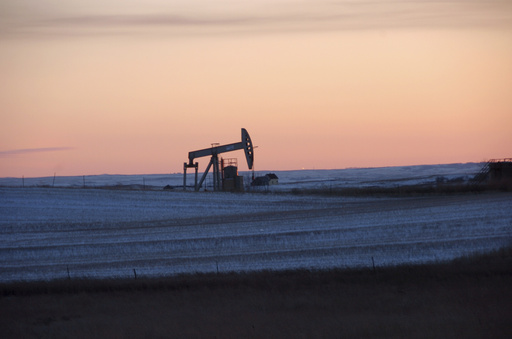
BISMARCK, N.D. – In an ambitious appointment, Donald Trump has nominated Doug Burgum, the governor of the oil-rich state of North Dakota, to head the Department of the Interior, which oversees an extensive expanse of federal land, including nearly half a billion acres and significant offshore areas. Trump’s directive of “Drill baby drill” during this announcement has sparked anticipation of renewed legal battles concerning public lands, as environmental advocates concerned about climate change have already signaled their intent to oppose this move.
Doug Burgum, who has made a name for himself in the software industry and boasts significant wealth, presents a more moderate choice compared to Trump’s cadre of other Cabinet nominees. His background as a two-term governor known for his popularity, coupled with a philosophical alignment reminiscent of conservationist Teddy Roosevelt, suggests he may prioritize collaboration over dismantling the Department of the Interior from within. His approach could potentially ensure a smoother confirmation process, allowing the incoming administration to quickly facilitate the expansion of public lands for commercial development.
Experts in public lands portray Burgum as a credible candidate for the role of Interior secretary. Notably, John Leshy, a former solicitor for the Interior under Bill Clinton, remarked, “He’s not a right-wing radical on public lands.” This sentiment is echoed by many who see Burgum’s ability to navigate the delicate balance between conservation efforts and resource extraction.
The Department of the Interior is tasked with managing approximately one-fifth of the total land in the U.S., a duty that includes wildlife protection, recreational activities, natural resource management, and honoring treaties with Native American tribes. These lands predominantly reside in the western part of the country, where tensions often arise between federal authorities and private landowners, sometimes escalating into violent confrontations involving right-wing groups that dispute federal jurisdiction.
Trump’s renewed focus on fossil fuels has echoes of his 2016 presidential campaign, significantly emphasizing oil production while largely sidelining coal, an industry that has faced significant challenges during his presidency. Currently, federal lands and offshore waters are responsible for supplying about 26% of U.S. oil, with production levels reaching historic highs under President Biden, despite Trump’s assertions that the Democratic administration has stifled drilling practices.
Industry representatives, along with Republican allies, advocate for increased oil and gas sales on federal lands, particularly in areas such as the Gulf of Mexico and offshore Alaska. The hopes for revitalized production are coupled with the oil industry’s interest in Trump’s proposed efficiency measures led by billionaire Elon Musk, aimed at expediting environmental reviews.
During Biden’s presidency, the frequency and scale of lease sales were curtailed, and previously weakened environmental rules were reinstated. The current administration’s stance on climate issues has led to a strategy that promotes conservation alongside energy development, including proposals to remove certain land parcels from future mining to protect endangered species.
North Dakota has been among the Republican-led states challenging Biden’s administration regarding public lands regulations, claiming that measures designed to combat climate change have obstructed traditional land uses like drilling and livestock grazing. Over the last 20 years, North Dakota has experienced a surge in oil production, largely due to advancements in drilling technology, with Burgum being a vocal supporter of the industry.
In a statement following his nomination, Burgum reiterated Trump’s vision for “energy dominance” and expressed a desire to enhance relationships with developers, tribes, landowners, and outdoor enthusiasts, underscoring the importance of responsibly utilizing natural resources while prioritizing environmental stewardship.
Under Secretary Deb Haaland, the Interior Department has made strides in collaborating with tribes, supporting their energy projects, and addressing pressing social issues like the crisis of missing and murdered Indigenous people. While Burgum has worked alongside tribes in various initiatives, critics have noted a lack of substantial land protections during his tenure, emphasizing the need for enhanced environmental safeguards.
If confirmed, Burgum will face a significant legal challenge stemming from a U.S. Supreme Court lawsuit aiming to assert state control over Interior Department lands in Utah, a case that has garnered support from North Dakota’s attorney general. However, Burgum’s administration has not disclosed whether he endorses Utah’s claims in this regard.
Overall, Burgum’s impending confirmation could shape the future of energy policies and conservation efforts within the Department of the Interior as the nation grapples with balancing development and environmental sustainability.
